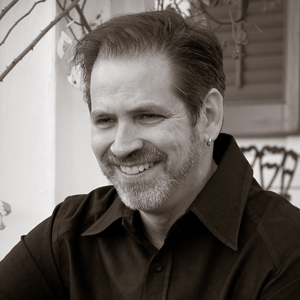As musicians (and humans in general) we have a lot of stress and anxiety; this is inevitable. Perhaps we dream of a “stress-free” environment where we can relax and unwind… yet when we actually arrive there, we are just as keyed-up as ever. This is because we carry the stress everywhere we go, and any escape seems like loss of control, like letting go of the steering wheel of a speeding car. Needless to say, we won’t do our best work or enjoy life if we don’t have some ways to learn to handle the unavoidable. While I am no expert on this (though I do play one on TV) I do have some suggestions.
What Not to Do
Here are some “toxic” activities that can add to our stress level:
- Worrying about things beyond your control: This could be some future disaster, international politics, stock prices, other people’s behavior, or at the end of it all, the inevitability of our own death.
- Trying to change the behavior of others: We find problems and issues at work, at home, with others, everywhere. Yes, things are not as we wish, but this is nothing new; people will always cut you off in traffic.
- Engaging in denial or deliberate ignorance of your own affairs: An example:not checking your bank balance for fear of too little money being in there. There is never more in there than you expect. The longer you avoid a situation, the more it decays and the more anxiety you will feel.
- Hanging on to anger and betrayal: Nobody is saying these things aren’t real; they are. However, waiting for justice to be done before you feel better will be a long wait. Everybody has been wronged at some point.
- Comparing yourself to others rather than to your “perfected” self. This is hard for most of us because the one person we never get to meet and know as a friend is ourself. Good friends and family can help us learn to appreciate our unique gifts.
- Imagining future failures: We are likely to have less-than-ideal results from time to time in our pursuits, but preparing ourselves for this constantly by playing them out in advance only makes them more likely. You will be able to handle humiliation just fine without doing this.
- Reliving past failures: Equally, re-running the disasters and embarrassments of our life does us little good; by now we probably have learned all we can from them.
- Noticing conspiracies and ulterior motives in others: While these are also real in many cases, we seldom are able to “foil” the schemes of others. Many times when I see what they are up to, I choose to get away from those types rather than try to fix it. (See this post)
- Numbness: Closing out through excessive escapism leads to myriad addictions, and we end up needing more and more to keep the walls up.
These are some things that may help us stay in a healthy state in the face of endless stress:
- Time awake but not busy: This means deliberately being quiet and thoughtful while fully aware. Sleeping doesn’t do this. Neither does worrying or making lists. Spend some time thinking. I used to have a 90 minute highway commute to a teaching job; It actually gave me some time to clear my thoughts. Talking on cell phones has deprived us of this quiet time.
- Being outdoors: Not just in the parking lot on the way inside. Our ancestors spent their entire lives outside, and even on a rainy day it puts us back in touch with the world we live in.
- Exercise: Again, our bodies were not designed to sit still all day, and we see the results in the myriad diseases of the sedentary. Our brains work better in a fit body.
- Laughing: I don’t mean a little chuckle or a derisive sneer; Laughing until the tears run and your sides hurt. This has enormous healing power.
- Doing kind things: We pile up injustices done to us and brood about them. (see point #4 above) but the answer is to do the opposite, and give freely.
- Deliberate recreation: Choosing to do something for fun, rather than to be entertained or numbed. Playing sports, family activities, even plain old social time. Many of us are too “busy” and miss out.
- Appreciating art (not just “entertainment”) Without starting a debate about what art is, I suggest that things that were created out of a sincere desire to add beauty and joy to the world qualify; superficial things that are designed to rob us of time or money do not. We know the difference.
- Meditation: Much like the quiet time above, but more focused, we quiet and clear our mind; learning to “clean up” our chaotic thoughts will project into our whole day. These can include Yoga, Prayer or any of a number of structured mind-states.
- Creating something new: As musicians, this means composition, improvisation or even the creation of new sounds. For others it might be writing, building things or art. This is one of the main things we can do to make the world better.
- Doing whatever you know you should be doing: Nothing dispels anxiety like getting down to business. Being “on the fence” or “about to begin” is actually a very stressful place to live.
- Measured, deliberate practicing: For musicians, this can cover a lot of our need for meditation, creation, art, and busyness. The key here is to go at the true pace that your practice dictates. More about this here.
- How do you deal with stress? Do you use any of the “toxic” strategies at the top of this article?
- What could you achieve if you were free from worry and fear?
- What do you fear most? Does running this scenario over and over help?


